Test Setup
I tested the Seagate Desktop SSHD 4TB ST4000DX001 with a Gigabyte Z97X Gaming G1 WiFi BK motherboard powered with an Intel Core i7-4770K processor. Below are the rest of the system’s specifications.
Processor: Intel Core i7-4770K
CPU Cooler: NZXT Kraken X61
Motherboard: Gigabyte GA-Z97X Gaming G1 WiFi BK Black Edition
Memory: Kingston HyperX Savage DDR3-2400 16GB
Graphics Card: Club 3D Radeon R9 285 royalQueen
Storage: Samsung 850 Pro 256GB SSD
Power Supply: Seasonic Platinum 1050W
Casing: In Win GRone Full Tower
In addition, the Seagate Desktop SSHD 4TB drives were plugged in a SATA 6Gbps port using AHCI (Advance Host Controller Interface). The drives were also not populated with any files, meaning it has a 100% free capacity. For the RAID 0 test, I changed AHCI to RAID in BIOS and was using Marvel controller.
Seagate Desktop SSHD 4TB Benchmarks
ATTO Disk Benchmark
ATTO Disk Benchmark is a popular disk benchmark tool used to test hard drives, SSD drives, HBAs, RAID Adapters and Storage Controllers. It measures the storage systems performance with various transfer sizes and test lengths for reads and writes. Most of the time it returns the highest possible read/write speed compared to most benchmarking tools for storage.
Notice that it already reached 170MB/s read/write constantly starting 4.0 and above. This is probably due to the learning technology incorporated in the drive.
HD Tune Pro
HD Tune Pro is a hard disk / SSD utility with many functions. It can be used to measure the drive’s performance, scan for errors, check the health status (S.M.A.R.T.), and securely erase all data and much more.
CrystalDiskMark
CrystalDiskMark is storage benchmark tool that measures sequential and random read and write performance. This tool has been used by many testers to gauge the performance of local storage drives.

PCMark 8 – Storage Test
Use the PCMark 8 Storage benchmark to test the performance of SSDs, HDDs and hybrid drives with traces recorded from Adobe Creative Suite, Microsoft Office and a selection of popular games. You can test the system drive or any other recognized storage device, including local external drives. Unlike synthetic storage tests, the PCMark 8 Storage benchmark highlights real-world performance differences between storage devices.
If you are familiar with the numbers, you probably would ask me by now that its read/write speed is somewhat similar with most 7200RPM hard drive, and that is correct. Unfortunately, this drive is a little bit tricky to benchmark using synthetic tests since its self-learning technology wasn’t able to learn the data as fast as possible before the whole tests end. Temporary file used by the tools to benchmark the drive’s performance was quickly erased after the test is finished. There was no time for the drive to “learn” the pattern. Well, except for ATTO probably which showed consistent result sooner.
However, the Seagate Desktop SSHD 4TB ST4000DX001 was able to perform better compared to other 5200 RPM and 7200 RPM drives I used before. It was also able to perform on par with the WD Red Pro 4TB NAS drive which cost more compared to Seagate’s current SSHD solution. When I benchmarked my Red Pro 4TB, its sequential read/write speed was around 170MB/s to 180MB/s, which is pretty similar with the Seagate SSHD.
Now let’s see how it performs when two of these drives as put together.

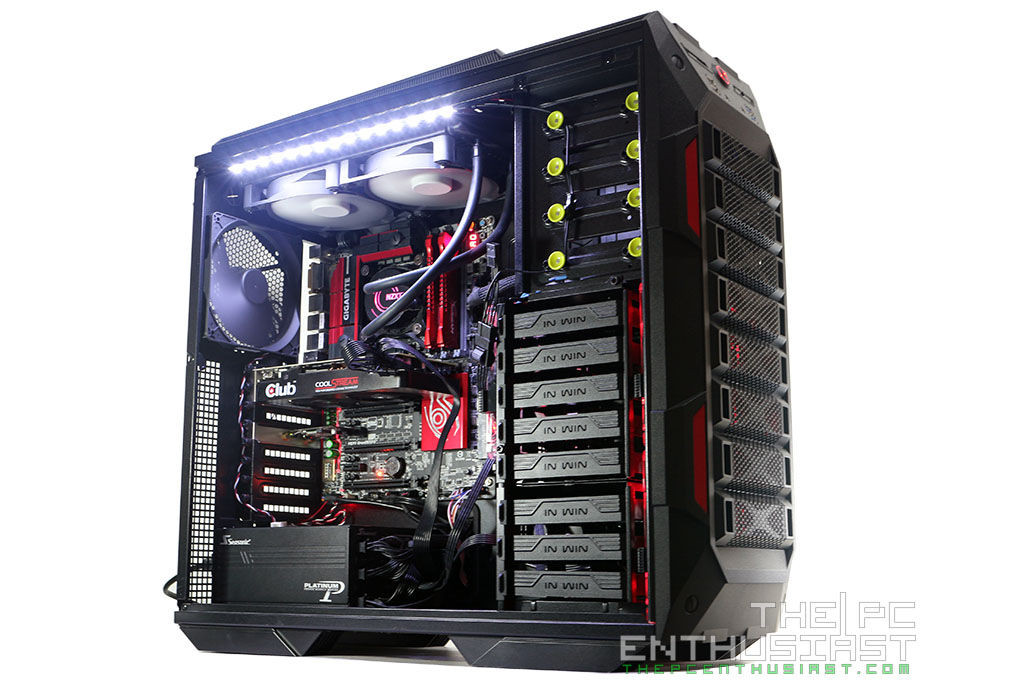
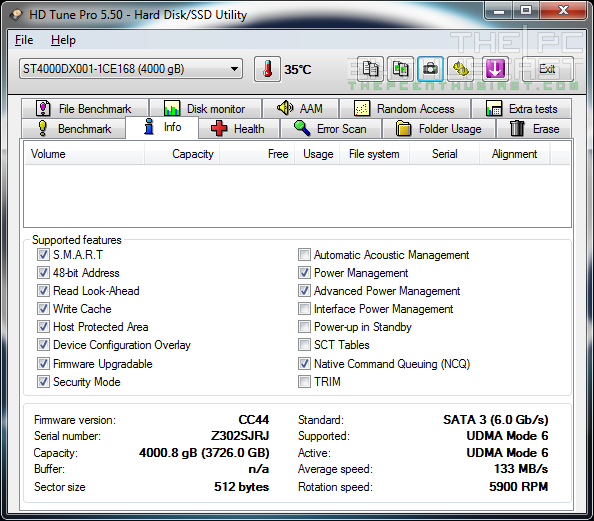
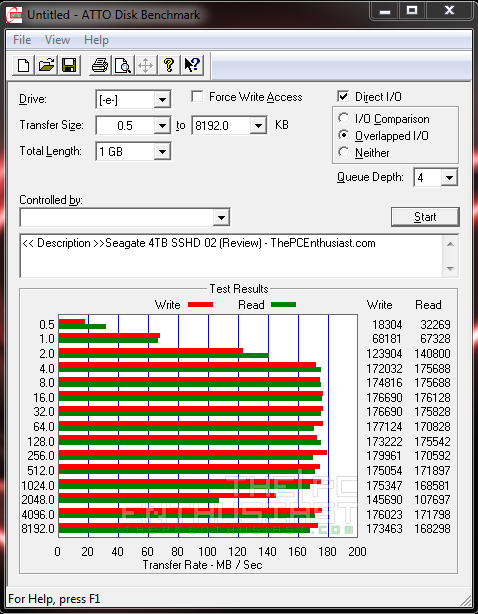
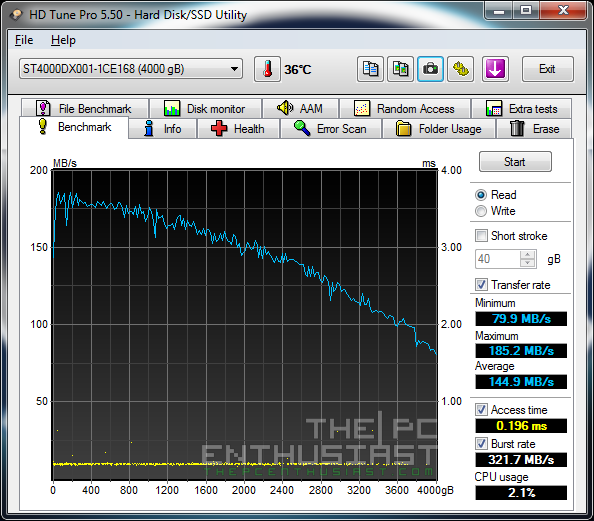
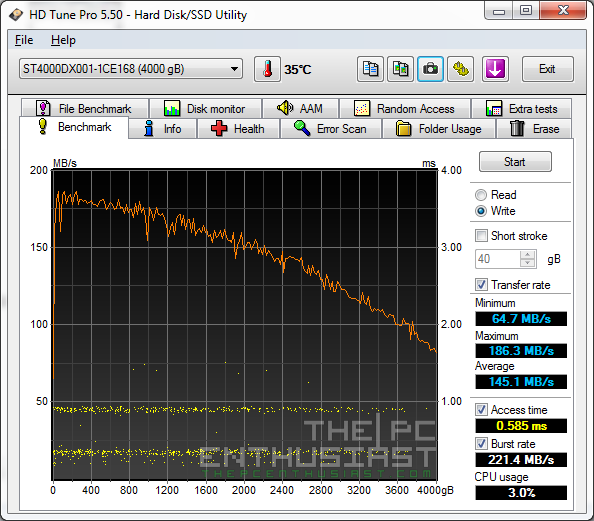
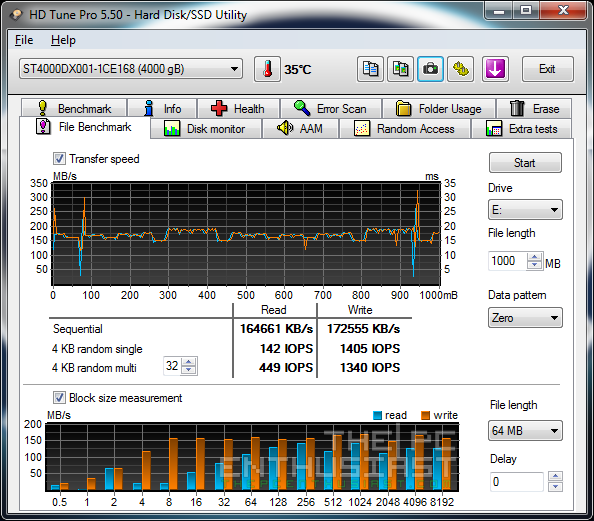
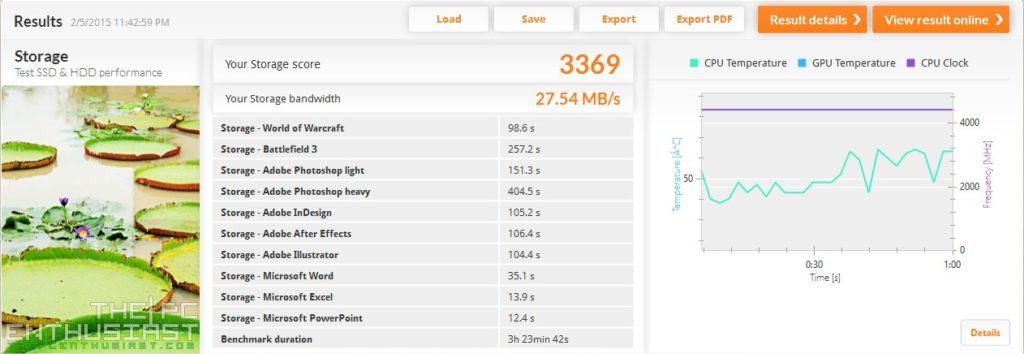
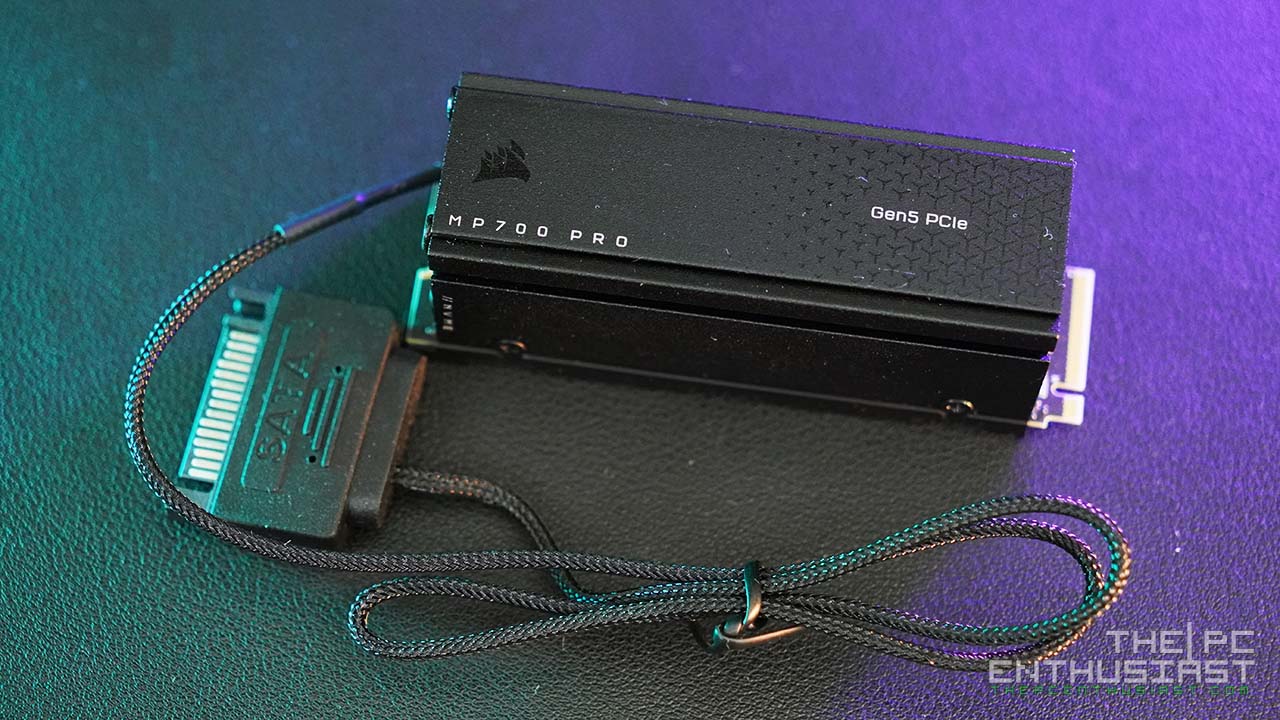
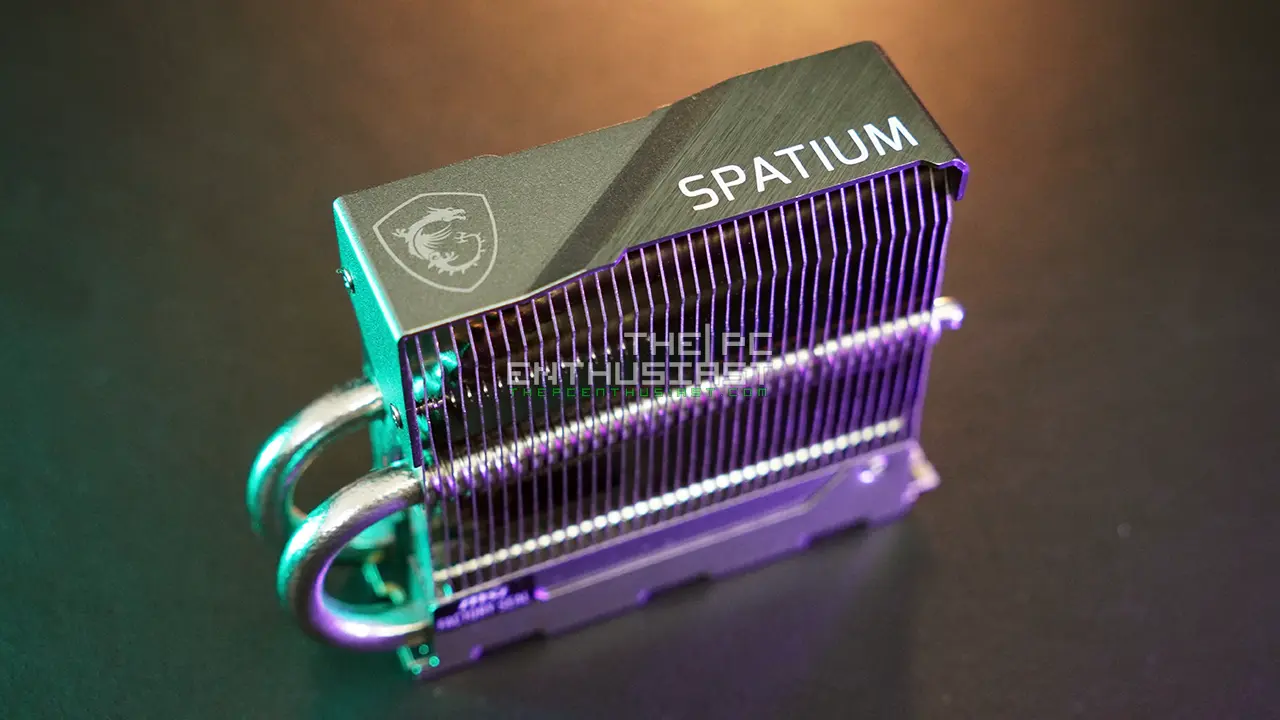
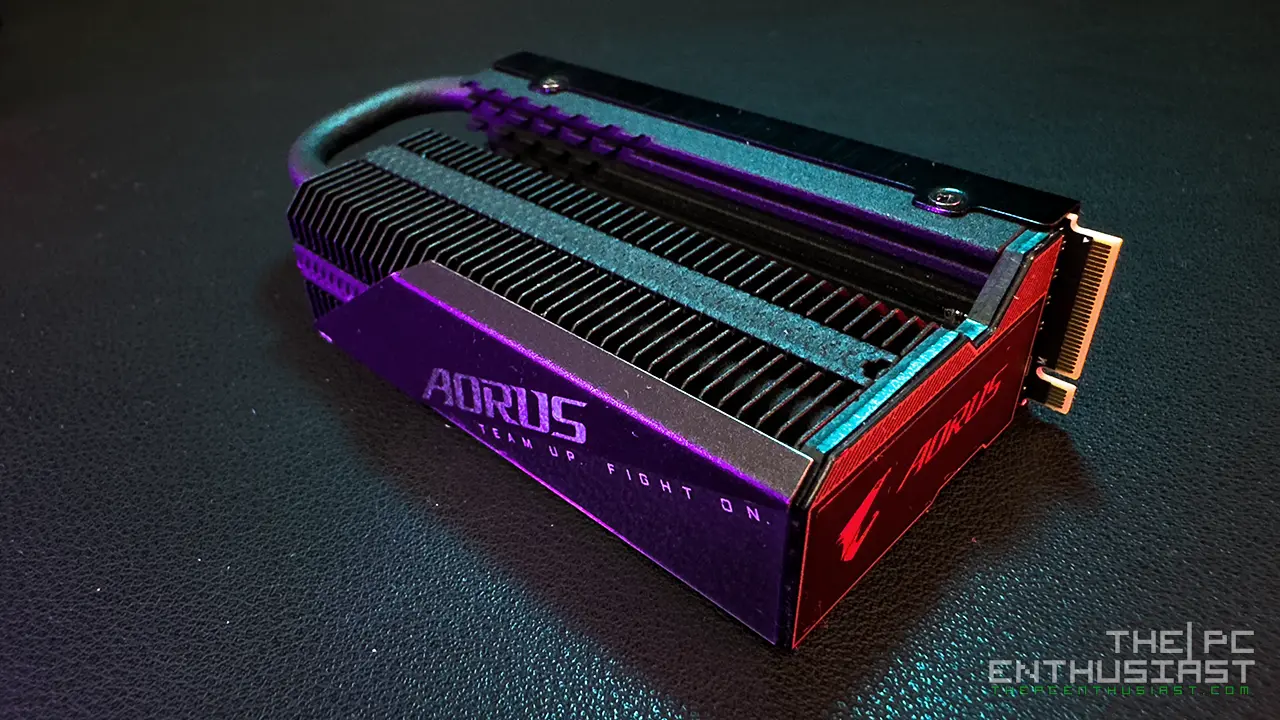
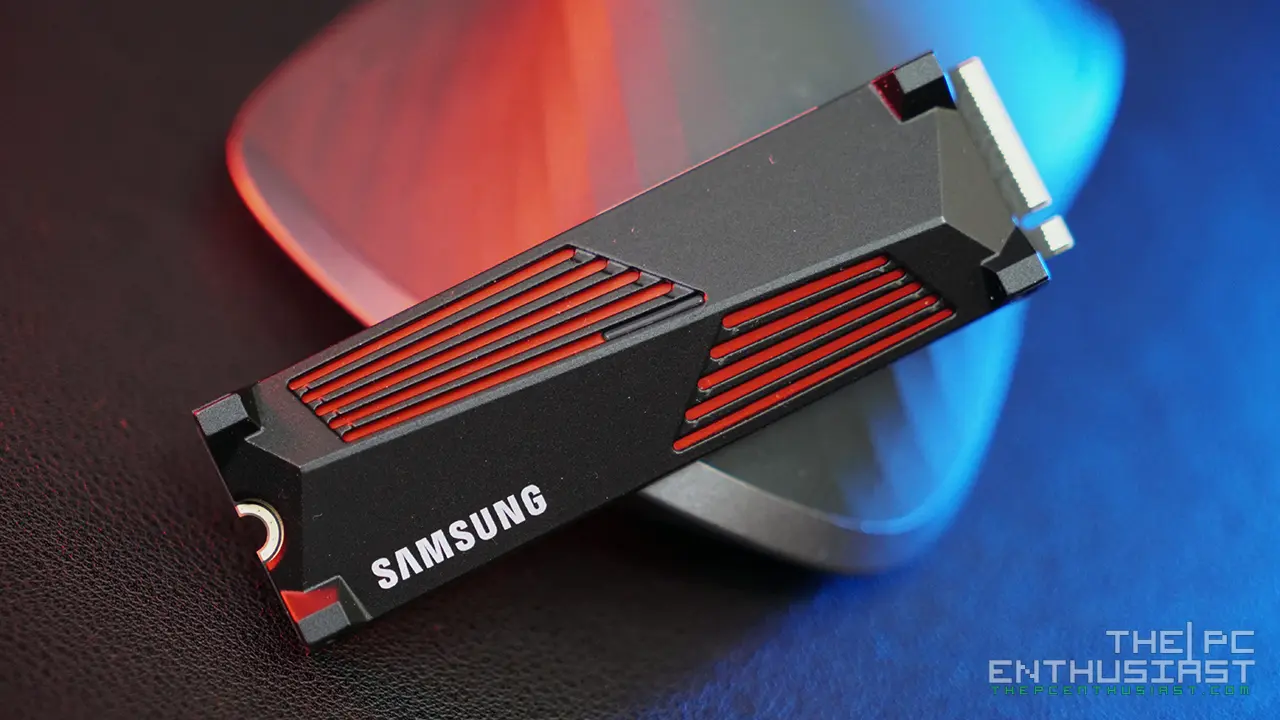
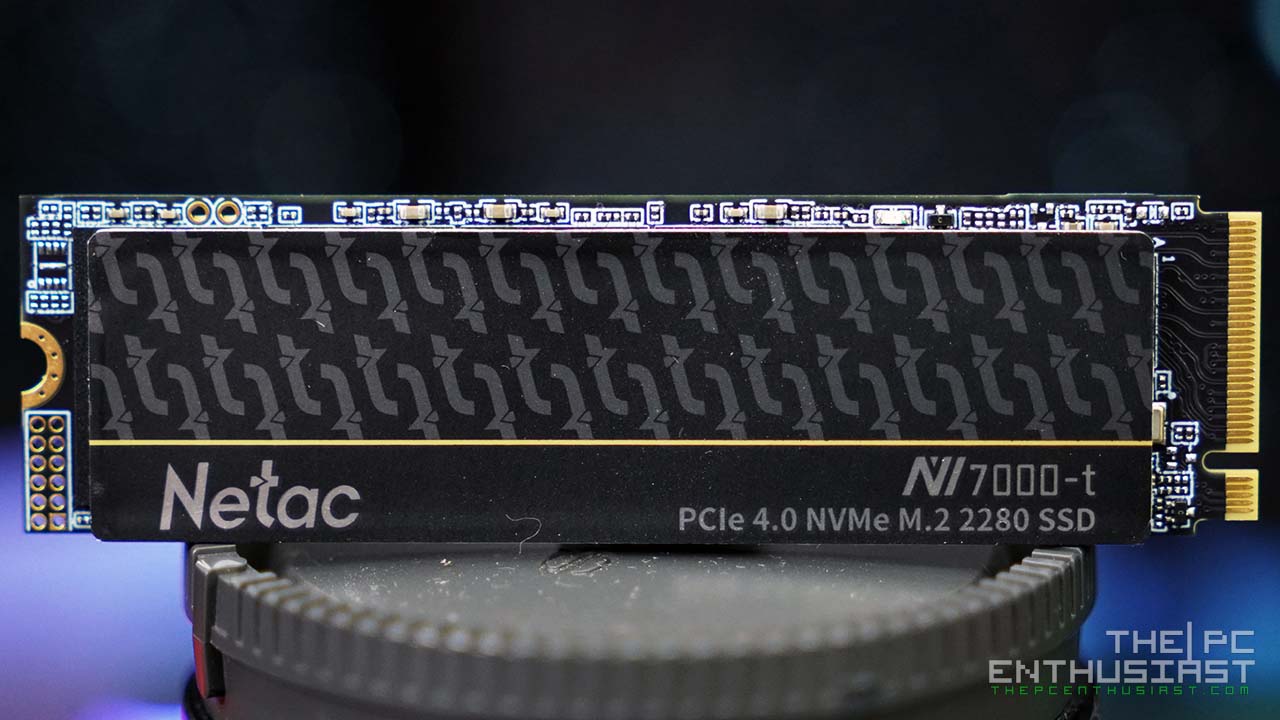
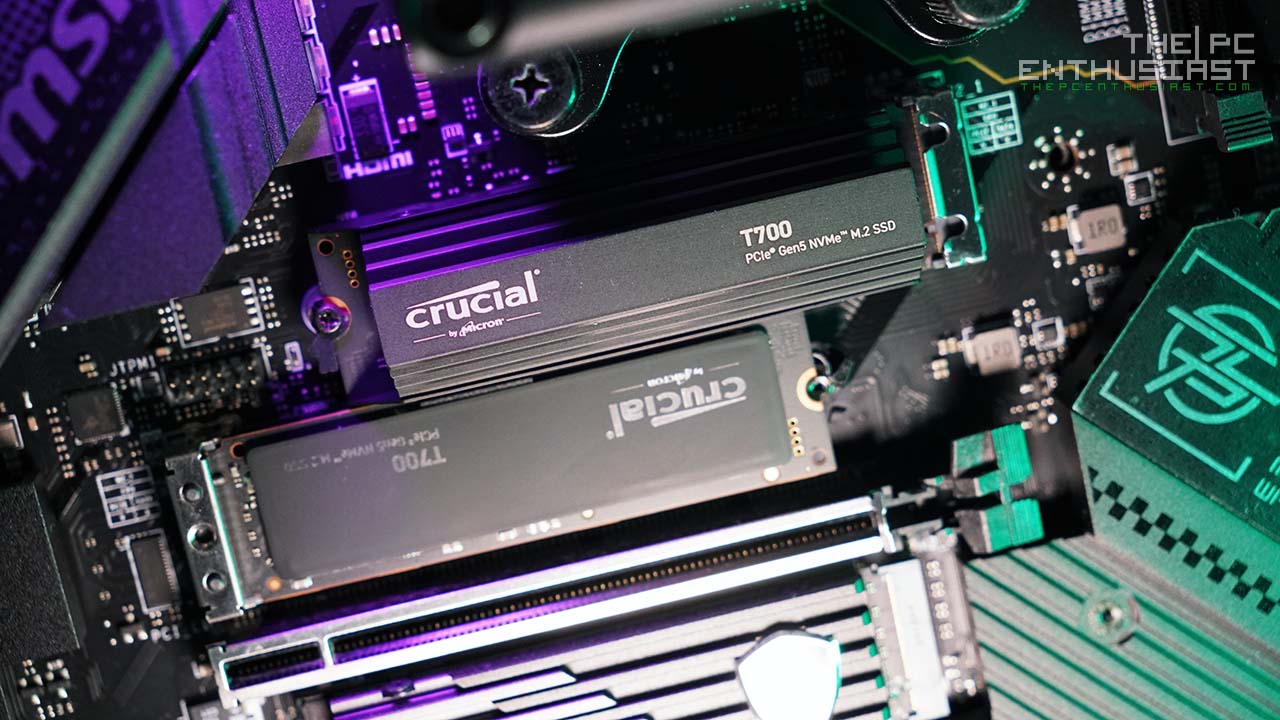

Smoke and mirrors. The tests are not designed for dealing with SSHD drives in a RAID or otherwise.
yes there are more appropriate test for RAID 0 for the SSHD. But just to give you an idea how these drives perform on RAID 0 mode. These SSHD drives are quite tricky to benchmark actually. However, at this point in time it may not be a good solution to put these two drives in RAID 0 mode. Newer seagate drives are faster even without the help of nand chips. Not just Seagate, WD and HGST as well.
You can’t test a SSHD using a benchmark, the drive learns what files are used often… meaning that if you use a new file wich is what a benchmarking tool does, you won’t use The nand at all and you are only testing the HDD part. You need to open say Photoshop 8 times for it to learn what files to cache into the nand. and each time you launch it it should reduse the time more and more until you can’t make it faster.
You are correct. The benchmark is provided to give us a glimpse of its performance. That’s why we are seeing some lower than expected performance on some tests because the drive hasn’t “learned” or got familiar with the files being processed. The Seagate SSHD is already an older product and currently we see newer drives (that are not SSHD) that are faster or on par with this one. And with the prices of SSDs going lower and lower, I don’t see SSHD as an attractive solution anymore. I normally would go for an SSD + HDD setup instead.